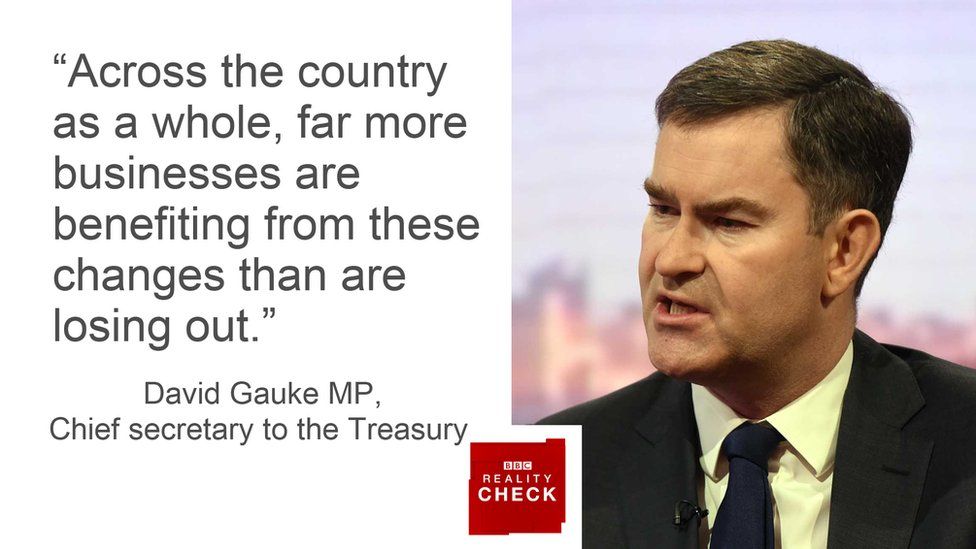Reality Check: Are there more winners than losers on business rates?
- Published

The claim: More businesses will win than lose as a result of business rates revaluation.
Reality Check verdict: More businesses will see their bills fall than will see their rates rise.
On 1 April 2017, the amount that businesses have to pay in rates will change to reflect a revaluation of premises that has been carried out by the government.
The changes will be relatively large because it has been seven years since the last one. The government has now said that it will have revaluations at least every three years.
There have been loud complaints from business owners who will have to pay more, but on the Today Programme, Chief Secretary to the Treasury, David Gauke, said: "Across the country as a whole, far more businesses are benefiting from these changes than are losing out."
Mr Gauke is only talking about England because, while there are also revaluation processes underway in Scotland and Wales (Northern Ireland did it in 2015), he has no power over them.
Business rates are a tax on non-residential property such as pubs, restaurants, warehouses, factories, shops and offices, but not farms or places of worship.
The amount they pay is based on how much annual rent could be charged on the premises, which is known as the rateable value.
There have been objections, from some business groups, to changes in the regime for appealing against the rateable value attached to particular premises.
On average, all areas are seeing their rates fall, except London, where bills will rise an average 11% this year.
In the 2016 Budget, the government said it would spend £6.7bn on reducing business rates by 2020-21.
Among the changes, premises with a rateable value of £12,000 or less do not have to pay any rates at all - they previously had to pay 50%.
The government says that covers about 600,000 businesses.
The proportion of business rates that must be paid increases gradually, between a rateable value of £12,000 and £15,000, affecting another 50,000 businesses.
There will also be an increase in the amount businesses can earn before they go from the standard rate to the higher rate.
The government has also changed the measure of inflation that it uses to increase rates every year - it has switched from the retail prices index (RPI) to the consumer prices index (CPI), which will usually mean smaller increases for businesses.
And it has introduced transitional arrangements to protect businesses from seeing their rates increasing too much straight away.
In order to fund this, it has also prevented businesses' rates from falling more than a certain amount.
The Department for Communities and Local Government says that 520,000 ratepayers will see their bills increase as a result of the revaluation, while 920,000 will see their bills fall and 420,000 will see no change.
The government says that the revaluation will not earn it any extra money.
- Published17 February 2017
- Published17 February 2017
- Published13 February 2017